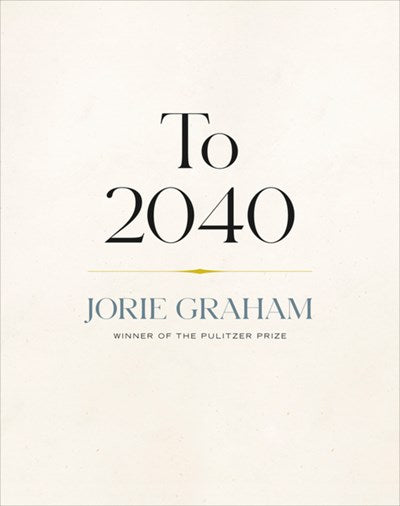Praise for To 2040
"Graham’s 15th collection explores extinction and the possibility of apocalypse in poems that interrogate humanity and environment. The ruins of urban life are juxtaposed with the natural world, offering a portrait of the climate crisis, mortality, and the uncertain future."―Publishers Weekly, Spring 2023 Announcements
"These gorgeous, dismaying, and piercing cautionary lyrics are tragic dispatches from a grim possible future spawned by our distraction and hunger for the wrong things. Clarion and virtuoso, Graham prods, 'are you not listening.' These poems must be heard."―Donna Seaman, Booklist
Praise for Jorie Graham
“We will always need to read Jorie Graham, and to read her closely, if we want to understand the last 40 years of poetry in America.” ―LA Review of Books
“Graham (Fast) begins her fifth decade of publishing with a bravura performance that probes the present for what the future will bring.” ―Publishers Weekly
“Graham has long been breaking open the lyric voice, seeing how much of the vast, fractured, overwhelming present it can contain. Often she explores a self that won’t hold together but must still be held accountable―as a political entity, a citizen.” ―Harper's Magazine
“Pulitzer Prize winner Graham’s poems are like those of John Donne and E.E. Cummings but on speed dial. Like Donne, Graham seeks to encounter the metaphysics of everything.” ―Library Journal
“Graham is one of our great poets. Her words will long outlast all of this chatter.” ―New York Times
“Every poem, Graham suggests, is part net and part wind, its finely knotted phrases and lines straining to “hold,” for longer than an instant, the presence passing through them.” ―New Yorker
“Graham's poems act as the sonar devices of contemporary western consciousness, probing the depths of human existential experience.” ―The Guardian

